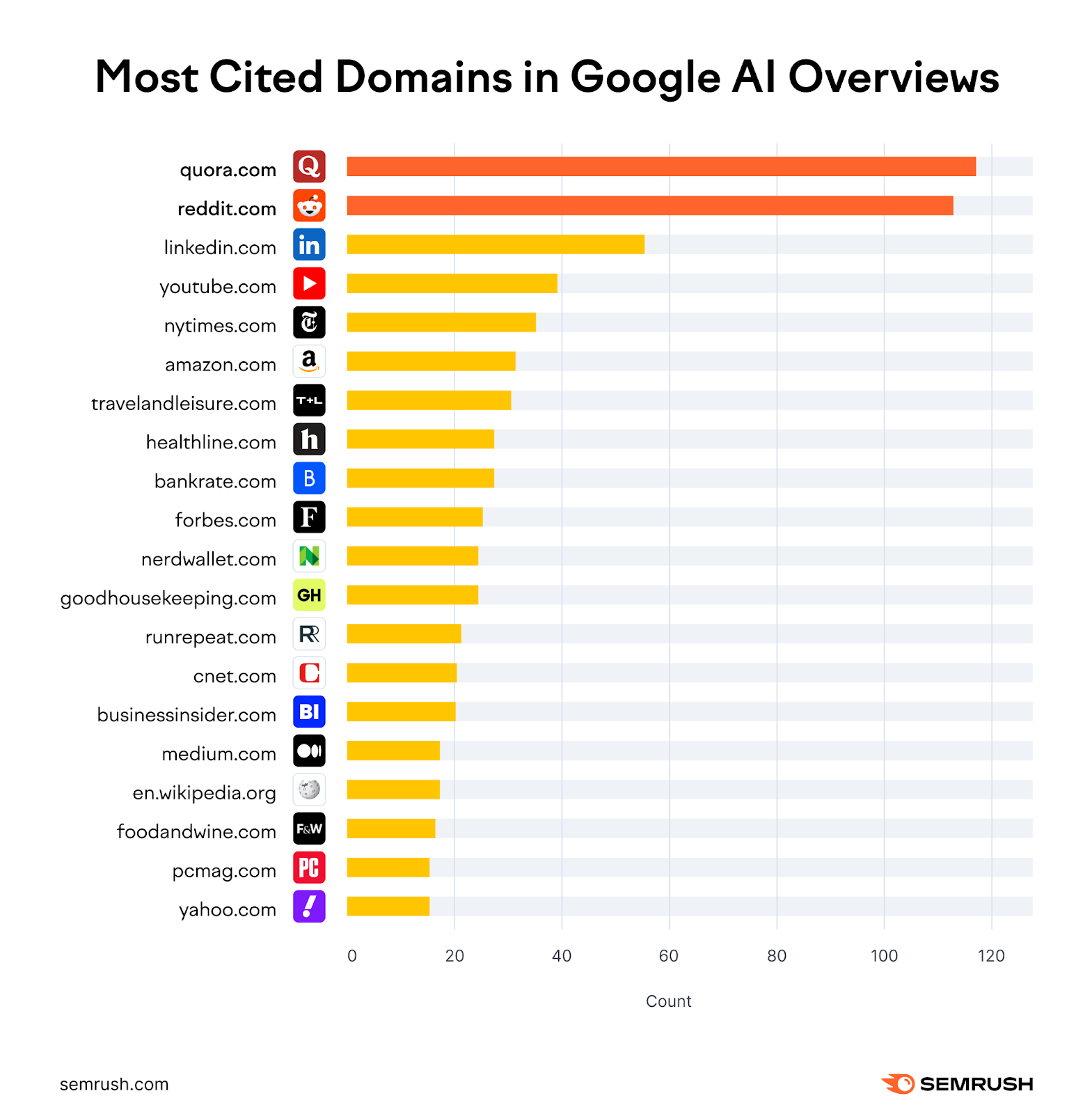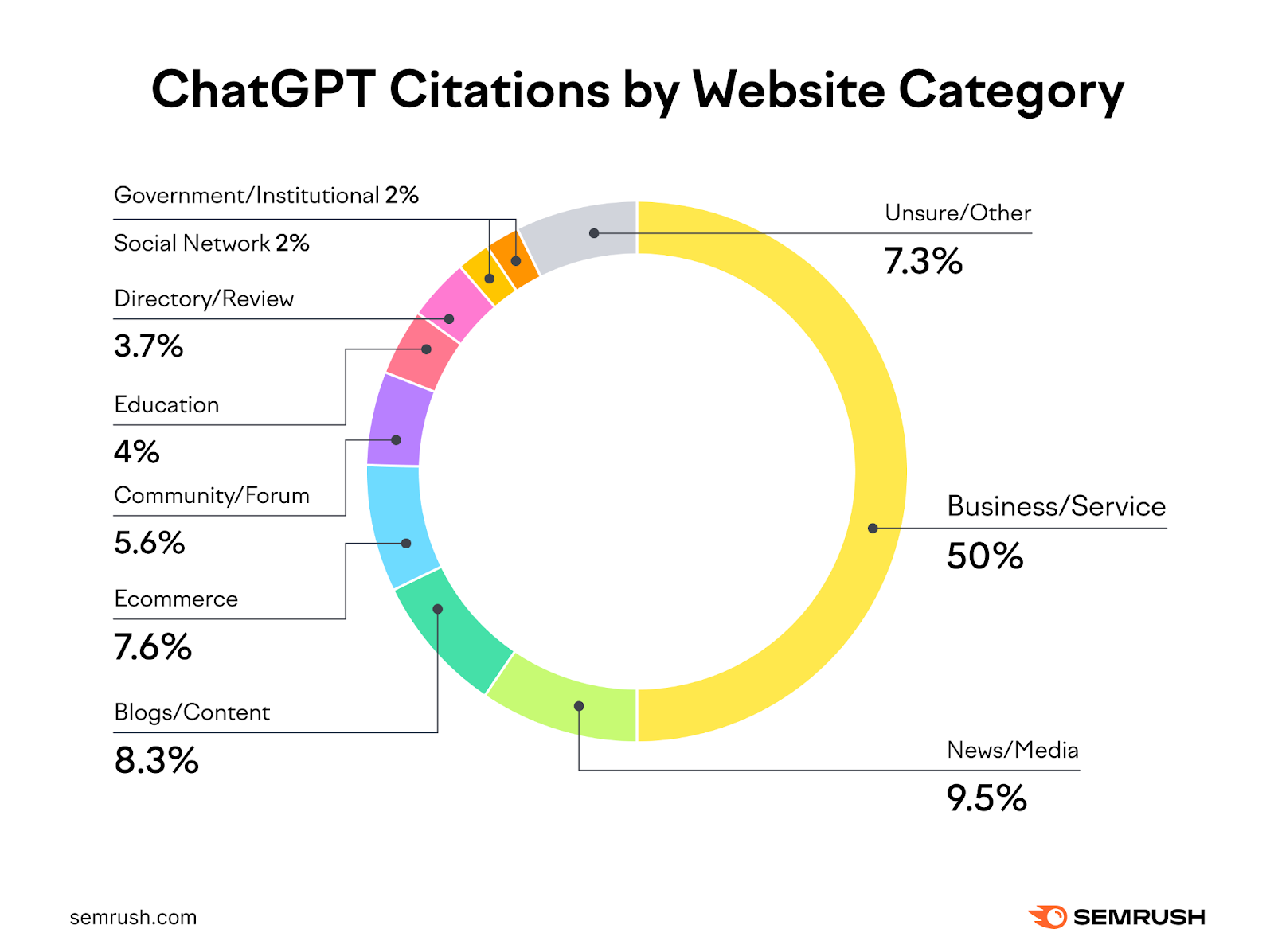This website uses cookies so that we can provide you with the best user experience possible. Cookie information is stored in your browser and performs functions such as recognising you when you return to our website and helping our team to understand which sections of the website you find most interesting and useful.
Generative Engine Optimisation (GEO): Why PR is essential for AI-driven search

From disputes about the em dash to people turning themselves into plastic action figures, AI has caused a stir in the business and marketing worlds. But it’s no longer a novelty, it’s changing how businesses operate and how people research and make decisions. Here, we take a look at why PR is essential for Generative Engine Optimisation and AI-driven search.
PR in AI-driven search
Consumers are increasingly turning to AI-driven summaries and comparisons when deciding which brands and products to trust. For example, our Homes Unhooked research found that people are starting to use AI tools for practical guidance, such as how to make their homes more energy efficient.
At the same time, AI has sparked challenges for newsrooms (e.g. fake spokespeople and AI-churn), but it’s also proving useful for idea generation, data interrogation, back-end automation and content creation, as outlined in this report. Whether businesses and individuals are ready or not, Google’s AI-powered summaries mean that AI-driven search is becoming the default experience.
The more embedded these tools become, the more they’ll shape how content is discovered, referenced and trusted. For PR professionals, marketing teams and business leaders, this means the rules of online reputation and visibility are changing fast.

What is Generative Engine Optimisation (GEO)?
SEO has long been about optimising for search engines. GEO, or Generative Engine Optimisation, is the emerging practice of optimising content so that generative AI platforms (like ChatGPT, Perplexity, and Google’s AI overviews) can accurately find, interpret and cite your brand and messaging.
Unlike SEO, which is about rankings and clicks, GEO is about visibility in answers, summaries, and comparisons. Success is measured not only in traffic but also in mentions, citations and how AI represents your brand.
This shift makes PR – with its focus on clarity, credibility and third-party validation – more important than ever.
Data: Key search, content and PR trends in AI
Earlier this year, SEMrush published Impact of AI Search on SEO Traffic, a study that sheds light on how AI is changing user behaviour and which sources are most often cited.
Key findings include:
- AI search could surpass traditional by 2028. SEMrush predicts that, in many sectors, visits generated from AI search (e.g. ChatGPT, Google’s AI Overviews, or “AI Mode”) may outpace traditional organic search by around 2028, especially if Google makes AI Mode the default interface.
- AI-driven visitors convert at much higher rates. On average, AI search visitors are 4.4x more valuable than traditional organic visitors in terms of conversion. By the time they reach a site, they’ve already compared options and are further down the decision path. Ahrefs research backs this up – although only 0.5% of its traffic comes from AI search, those visitors account for 12.1% of signups.
- Sources matter. AI systems heavily favour community Q&A platforms (like Reddit and Quora), trusted media, and government or institutional sites. About half of ChatGPT’s citations in the SEMrush study point directly to brand homepages or key conversion pages. This means that clear, structured primary web content is just as – if not more – important than long-form blogs buried deep in a site.
Research to reality: Client GEO audit in action
These findings aren’t just theoretical. In audits we’ve run for brands in sectors such as construction, home & garden, professional services, and manufacturing, we’ve seen the same patterns emerge.
- Your website matters. Pages that clearly outline what you do, who you serve, your team, case studies, and testimonials remain the foundation of visibility in both traditional and AI-driven search.
- Content structure is critical. AI systems favour well-formatted content (Q&As, bullet points, clear headings, summaries) because it’s easier for machines to process.
- Third-party domains count. Review platforms, trade media, national outlets, government websites, Wikipedia, and forums frequently appear as cited sources.
- LinkedIn love. LinkedIn is cited frequently. Brands that once overlooked their company page or executive profiles may want to revisit this, even if your main audiences aren’t hanging out on the platform (e.g. for consumer brands).
- Industry-specific sources emerge. Different sectors surface different authoritative sources, for example, trade publications, awards, ranking tables, or membership bodies can feature more prominently for some sectors.
- Messaging consistency is essential. Scattered or contradictory messaging makes it harder for AI summaries to capture your value proposition accurately.
- Watch for outdated or misleading sources. Older articles, spam review sites, or misleading content still creep into AI outputs. Hopefully this should be stamped out as the AI tools improve, but this reinforces the need to keep accurate, up-to-date content on your own channels and reputable third-party sites.
The trust and bias challenge
AI models don’t always get it right. They can ‘hallucinate’ (invent details or present things inaccurately), lean on outdated data, or amplify biased sources. This creates risks as your brand could be misrepresented, or competitors could be cited more often simply because their content is more structured or recent.
PR has a critical role to play here, helping to ensure that accurate, current, and credible information about your brand exists in the public domain so AI tools have reliable material to draw from.
PR and content advice for businesses in the world of AI-search
At Unhooked, we’re investing in AI-driven tools and taken part in industry-leading AI programmes through Greater Manchester’s innovation ecosystem. We’ve seen how fast this landscape is shifting, and how PR strategy needs to adapt.
Here’s how businesses can prepare:
- Start with an audit
- Benchmark your brand and industry visibility in AI search and traditional search.
- Note which competitors, content types, and third-party sources appear most often.
- Identify both opportunities and risks (e.g. outdated content, unflattering reviews).
- Strengthen your own channels
- Build clear, structured pages using internal links, summary sections, and bullet points.
- Articulate your value proposition in plain language.
- Add FAQs or Q&A pages targeting common audience questions.
- Create pillar pages or topic hubs to signal authority.
- Keep messaging consistent across pages.
- Showcase case studies, testimonials, awards, and proof points.
- Invest in LinkedIn, both company and executive profiles are visible to AI.
- Be strategic with PR and media
- Focus on timely, data-rich and/or authoritative story angles.
- Ensure press releases are well-structured, accessible, and contain clear claims.
- Secure coverage in national, trade, and specialist media outlets.
- Avoid churning out irrelevant or AI-generated ‘filler content’. Poor-quality material risks damaging reputation and media relationships – especially in a world where the media is under-resourced.
- Use professional photography (avoid AI-generated imagery) for credibility and to improve your chance of securing quality media coverage.
- Leverage awards and recognition
- Enter credible industry awards and “best of” rankings and league tables.
- Publish structured award-win pages that explain the criteria and outcomes.
- Use award recognition as hooks for PR, social content, and executive bios.
- Foster reviews and forum presence
- Encourage genuine customer reviews on trusted platforms.
- Participate in forums and Q&A sites, answering real questions transparently.
- Monitor mentions and citations to track brand reputation.
- Avoid fake profiles or fabricated reviews. AI may amplify them, but reputational damage lasts longer.
- Continuous monitoring and measurement
- Regularly check how your brand appears in AI summaries for common queries.
- Track which sources and competitors are gaining visibility.
- Monitor both traditional SEO metrics and new GEO measures (AI mentions, citations, sentiment).
- Keep up to date with algorithm changes and industry research from players like SEMrush and Ahrefs.
Why PR partners are essential in the new age of search
Here’s why businesses can’t afford to ignore GEO:
- Instant scrutiny. Investors, customers, and journalists can instantly surface Companies House records, reviews, and news reports via AI tools.
- Industry positioning. Being referenced in AI summaries is visibility beyond rankings.
- Clarity of message. Vague or inconsistent messaging won’t be understood or repeated accurately by AI.
- Third-party validation. Media coverage, awards, and reviews build credibility AI looks for.
- First-mover advantage. Early adopters will capture share of voice in AI-driven results.
- Beyond traffic. As clicks decline, brand mentions, visibility in answer engines, and sentiment become key.
- Decision partnerships. Time-poor audiences increasingly ‘co-research’ with AI, asking tools to compare brands on price, trust, quality, and credibility. If your content fuels those comparisons, you stand out.
Choosing the right PR partner to support PR and content in AI-search
When selecting a PR agency to help you prepare for AI-driven search, look for one that:
• Understands PR strategy and how it ties into business objectives.
• Can manage reputations and handle crises.
• Has strong journalism and PR skills, knowing what makes a real story and how to pitch it.
• Is actively monitoring AI and experimenting with new ways to surface client messages.
• Works transparently and ethically, focusing on meaningful outcomes rather than vanity metrics.
At Unhooked Communications, our MD Claire Gamble is engaged with Turing Innovation Catalyst (Manchester) and Innovate UK to stay ahead of AI trends. We’re investing in internal tools and frameworks to help clients not just keep pace, but lead in this new GEO era.

The new age of search is about more than SEO or GEO; it’s about reputation, credibility, authority, and trust. In a world where AI decides what gets seen, cited, and compared, PR is the discipline that ensures your brand shows up in the right way, in the right places.
Want to see how we can help your brand with PR and content services? Contact us today.


